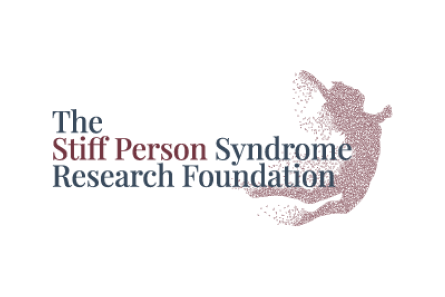The Stiff Person Syndrome Research Foundation
Cycle 2
Stiff Person Syndrome (SPS) is a neurological disease with autoimmune features. Symptoms include muscle spasms, hyper-rigidity, debilitating pain, and chronic anxiety. Muscle spasms can be so violent they can dislocate joints and even break bones.
Last updated 04/30/2025
Clinical
Disease Class
Immunological diseases
Neurological diseases
Body Systems
Muscular / Skeletal
Nervous / Sensory
Organs
Muscles
Known Genetic Link
No, the disease is not known to have a genetic basis
causative_genes
None specified / unknown
contributory_genes
None specified / unknown
Type of Inheritance
Not specified / unknown
Newborn Screening
Not applicable
Disease Mechanism(s)
Aberrant immune response
Autoimmune
Autoinflammatory disorder
Other
Age of Onset
Adolescence (12-17)
Adulthood (age 18-64)
Early childhood (age 1+-5)
Elderly (age 65+)
Middle childhood (6-11)
Average Age at Diagnosis
Adulthood (age 18-64)
Life Expectancy
Adulthood (age 18-64)
Elderly (age 65+)
Affected Sex(es)
Female
Male
National Prevalence
1001-10000
Global Prevalence
Unknown
National Incidence
Less than 10
Global Incidence
Less than 10
Populations and/or ancestry with higher prevalence
Some evidence suggest a higher than average prevalence/incidence rate in African Americans
Symptoms / Phenotypes
anemia
diabetes
muscle stiffness
spasticity
thyroiditis
vitamin deficiency
vitiligo
Biomarkers
Diagnostic
· The most common IgG biomarker detected in the Stiff Person Syndrome Spectrum is GAD65 antibody; however, glycine receptor (GlyRa1), DPPX, and amphiphysin antibodies are also found.
Existing Therapies
Off-Label Drug Use
Organizational & Research
Cell Lines
None
Cell Lines, Institution
None
Cell Lines, share
N/A
Disease Model
None
Disease Model, share
N/A
Clinical Trial Role
Recruitment and outreach, patients
Study material design, review (not protocol)
Biobank, Institution
COMBINEDBrain
Biobank, Involvement
Consulted
Funded
Center of Excellence, Institution
Johns Hopkins Hospital
Center of Excellence, Involvement
Funded
Registry
Yes, we have a registry that we created
Data Collected, Registry
Clinical data
Electronic health records/electronic medical records
Genetic data
Imaging data
Longitudinal natural history data
Medication usage
Patient contact info
Patient-reported data
Data Entered by, Registry
Other
Platform, Registry
IAMRARE
Natural History Study
Yes, we have a natural history study that we created
Data Collected, Natural History Study
Clinical endpoints (outcomes)
Electronic health records/electronic medical records
Genetic data
Imaging data
Medication usage
Patient-reported outcomes
Prospective data
Retrospective data
Platform, Natural History Study
IAMRARE
FDA Patient Listening Session
No
FDA Patient-Focused Drug Development (PFDD) Program
No
ICD Codes
Yes, we have an ICD-10 code specific to our exact disease
Diagnostic Guidelines
In the process of creating formal diagnostic guidelines for publication in a peer-reviewed journal
Science Advisory Board Policies
Yes, willing to share SAB policies
Research Network Policies
Does not have a CRN
Research Roadmap
We don't have a Research Roadmap
International Chapters
None
International Partners
None
